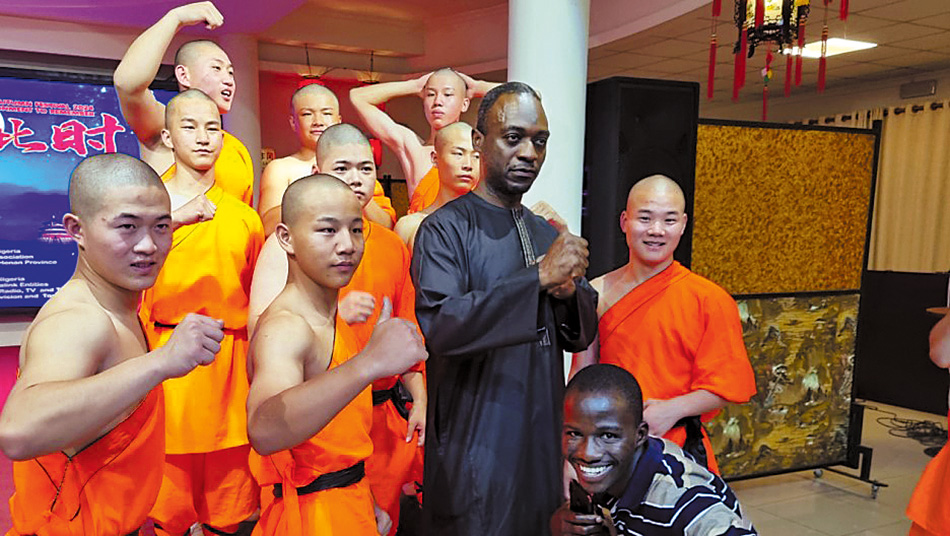Cultural center offers Nigerian peek into world he has long been fascinated with

China has been a source of fascination for much of my life, right from my childhood reading stories about the great country of the East in comics and storybooks to watching kung fu (which I would later learn the word is actually gongfu) movies.
Being exposed to reading and writing in English and in Arabic, like so many other children growing up in Nigeria, also made me quite curious about Chinese calligraphy. As an artist, I also admired and still admire artistic brush strokes featured in Chinese calligraphy displayed in books and on television.
Now as an adult, China’s place in the modern world with the country’s amazing technological, economic and social advancements has only increased my interest in learning more about China and the Chinese people.
China has proved itself to be a willing development friend and partner to countries like Nigeria. It is just time for those other countries (again, Nigeria especially) to also stand up for themselves, be recognized and respected.
Some of the earliest stories I heard about the Chinese came from my grandfather, Sani Akpa. He was a World War II veteran and one of the many Nigerians who formed part of the African troops used by the British and their allies to fight the Japanese in Burma, now Myanmar. He told us about his adventures in the jungles of Burma, back in 1944. The troops fighting the Japanese were a mix of Africans, Indians, Chinese, and others. My grandfather told us about the
Chinese soldiers whom he said liked to smile a lot — they sounded really friendly to us.
My father was a civil engineer. He had also been very interested in the solutions Chinese engineers were developing indigenously to solve their local problems. I got to learn about China’s drive to technological development from the 1960s, ’70s, and onward. As part of our general education, my father also got me and my siblings to learn about the famous Silk Road history of China which played a major role in trade and civilization in ancient history.
It will come as no surprise then that as with the advent of the wide use of the internet in Nigeria from the early 2000s, I got the means of exploring China even further. Back when the internet was new, and even today, many of us were excited to make friends (pen pals) with different people all across the world. By 2001, aside from Nigerians, I had a Scottish, a US, and a Chinese pen pal. Twenty-four years later, today, my Chinese pen pal has remained the only one I frequently chat with. We frequently write about visiting each other’s countries someday.
In 2006, I got an admission to the University of Aberdeen, Scotland, to study for a Master’s degree in Information Technology. During my Master’s program I made more Chinese-speaking friends.
It would be several years later after I returned to Nigeria from Scotland that I would have another encounter with the world of the Chinese. In 2023, one of my colleagues at work at the National Identity Management Commission in Abuja, Nigeria, told me about the Chinese language course he was taking. I was really intrigued and asked him where he was taking the course. It turned out that the China Cultural Center in Abuja, which was very close to my office (across the road), had been providing light Chinese language classes for students of all ages. In addition, cultural events and salons were also hosted at the center. I immediately registered for the language classes, as soon as the new session for the year began.
The journey since then as a part-time Chinese language student has been one of hard work and challenges, but immense satisfaction and beautiful discovery. I get to learn to speak, read, and write in Mandarin with my fellow classmates and our teacher. We all get to attend events at the center and learn more about Chinese culture, society, art, calligraphy, photography, films, technological development, and much more. I am particularly glad I get to try out Chinese calligraphy a little bit every now and then — I am still very much a beginner.
The author works at the National Identity Management Commission in Nigeria where they handle matters related to the national identity scheme for citizens and legal residents. He is in charge of NIMC’s website — handling content and web design/development. He is also a part-time Chinese language student at the China Cultural Center in Abuja.


